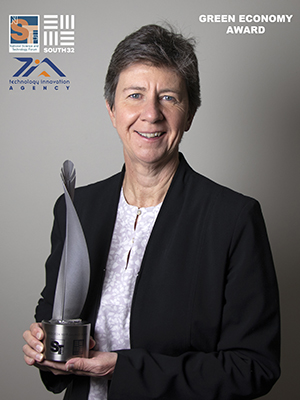|
G one are the days of the throwaway economy. Environmental scientists and pioneers like Prof Linda Godfrey of the NWU are leading the charge towards a thriving circular economy.
With over 20 years dedicated to studying the waste sector, Prof Godfrey has observed the unsustainability of the traditional linear economy model, characterised by extraction, production, consumption, and disposal. She argues that this model has severe environmental and health impacts and advocates a shift to a circular economy.
 Prof Linda Godfrey
Prof Linda Godfrey"In a circular economy, products and materials are kept in circulation through processes like maintenance, reuse, refurbishment, remanufacturing, recycling and composting as a means of continuing production in a sustainable or environmentally friendly way."
Prof Godfrey, a prominent figure in South Africa's environmental science sector, is an extraordinary professor at the Faculty of Natural and Agricultural Sciences at the NWU and a principal scientist at the Council for Scientific and Industrial Research (CSIR).
There, she manages Circular Innovation South Africa (CISA), a Department of Science and Innovation initiative hosted by the CSIR to advance the government's circular economy goals, which are outlined in the national Science, Technology and Innovation (STI) Decadal Plan (2022-2032).
She has also played a crucial role in shaping the country's Waste Research, Development, and Innovation (RDI) Roadmap for the DSI.
Highlighting her impact on sustainable development and waste management innovation, Prof Godfrey recently received a National Science and Technology Forum-South32 Award in the Green Economy category.
She is also making her (environmentally friendly) mark at the NWU. Early in 2024 she introduced a postgraduate study unit on the fundamentals of waste management.
Her students are also gaining an in-depth understanding of the management of waste through its life cycle, based on her lecture, "A life cycle perspective of waste management – A linear view from cradle to grave vs a life cycle perspective of waste management: waste to worth".
Emphasising the global importance of the circular economy, Prof Godfrey notes that resource extraction and processing cause significant climate impacts, biodiversity loss and water stress.
In contrast, the circular economy approach can help South Africa and other developing nations bypass the resource-heavy growth patterns of the global north, fostering sustainable and regenerative development.
|